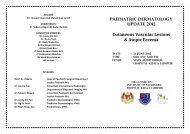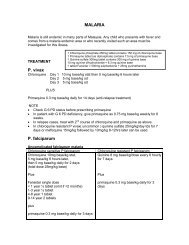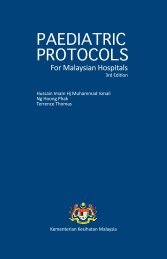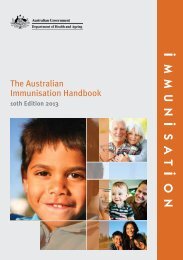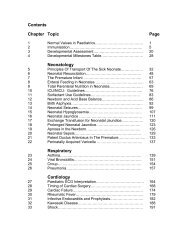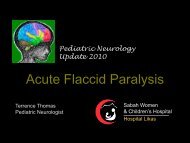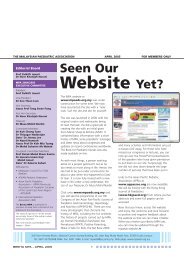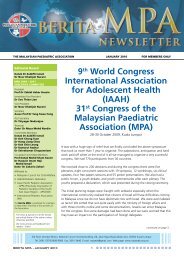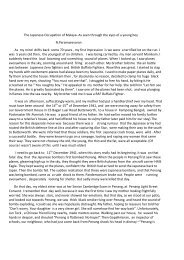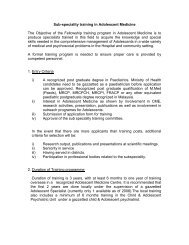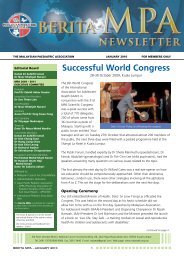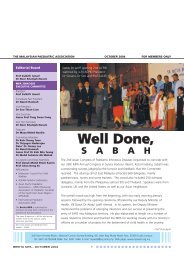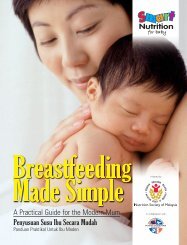English - pdf - 1234 Kb - Malaysian Paediatric Association
English - pdf - 1234 Kb - Malaysian Paediatric Association
English - pdf - 1234 Kb - Malaysian Paediatric Association
Create successful ePaper yourself
Turn your PDF publications into a flip-book with our unique Google optimized e-Paper software.
16<br />
When You<br />
are not Around<br />
With busy lives and demanding careers,<br />
some parents may not be able to look<br />
after their children all the time. Some<br />
parents may need to send their children<br />
to babysitters or nurseries during<br />
working hours. Others may employ livein<br />
maids or leave the children with the<br />
grandparents. In this manual, these<br />
people will be collectively known as<br />
‘childminders’. It becomes their job to<br />
protect your child’s safety when you are<br />
not around<br />
1. Always leave your child in the care<br />
of a responsible adult. Older children<br />
should not be given the responsibility<br />
to look after the younger ones.<br />
2. Make sure that the person who is<br />
looking after your child also<br />
practices good safety habits. Discuss<br />
Recognising an<br />
Emergency<br />
Falls<br />
If your child falls and you are worried<br />
that he may have a head injury or a<br />
broken bone, watch him carefully for:<br />
• Disorientation<br />
• More than one or two episodes of<br />
vomiting<br />
• Unusual sleepiness/difficulty<br />
awakening<br />
safety concerns with the childminder<br />
if you feel that there are<br />
improvements to be made.<br />
3. Give the childminder all your<br />
telephone numbers to call in case of<br />
an emergency.<br />
4. If your child is sick and taking<br />
medication, write down the times the<br />
medication should be given and the<br />
dosage. Inform the childminder if<br />
you have given the medication<br />
earlier in the day to avoid<br />
overdosing.<br />
5. Tell the childminder about any special<br />
medical condition your child may<br />
have, such as asthma or epilepsy.<br />
Make sure you explain how an event<br />
such as asthma attacks or a seizure<br />
should be handled.<br />
• The absence of movement abilities<br />
that your baby previously had before<br />
the injury (e.g. crawling or walking)<br />
• Blood or watery discharge from<br />
ears/nose<br />
• A seizure after the injury<br />
• Eye pupils unequal in size<br />
Should he have any of the above signs,<br />
take him to hospital immediately.



